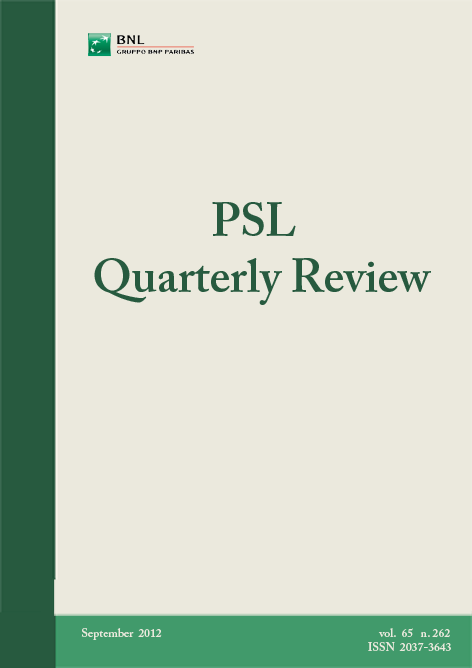A lesson from Pietro Leopoldo
DOI:
https://doi.org/10.13133/2037-3643/10156Keywords:
regional economics, people’s character, Leopold II, Nicholas Georgescu Roegen, implicationsAbstract
The paper analyses some relevant notes (written around 1790) that Leopold II left upon leaving Tuscany to become Holy Roman Emperor. The manuscript proves very interesting to today’s economist. It shows how a holistic approach to the socio-economic characteristics of a region should always be considered, starting from a people’s spirit, or ‘representative character’. This article summarises Leopold’s notes and draws some implication for the modern study of urban and regional economics. What most interests us most about these Relazioniis the picture of the local communities, all meticulously described. The point is to demonstrate that there was, in the Enlightenment of the Tuscan Grand Duchy in the latter part of the 18th century, a reasonably distinct perception of the importance of a detailed knowledge of the characteristics of, on the one hand, the various social classes – observed at the local level – and at the same time of their ‘territory’, with its limitations and potential, or, to put it in modern terms, of the original and/or the derived naturalistic and historical-psychological foundations of human progress.
JEL Codes: R11, B11, B15
References
BECCATINI F. (1796), Vita pubblica e privata di Pietro Leopoldo di Austria, granduca di Toscana, poi imperatore Leopoldo II, Siena: Filadelfia.
FASANO GUARINI E. (ed.) (1986), “Un microcosmo in movimento, 1494-1815”, in (id.), Prato. Storia di una città, vol. II, Prato: Comune di Prato/Le Monnier.
GEORGESCU ROEGEN N. (1971), The Entropy Law and the Economic Process, Cambridge (MA): Harvard University Press.
MATTOLINI M. (1981), Il principe illuminato. Pietro Leopoldo, Florence: Edizioni Medicea.
SALVESTRINI A. (ed.) (1969), Relazioni sul governo della Toscana, Florence: Olschki
Downloads
How to Cite
Issue
Section
License



